


For any area of life, whether it's work, transport, or sports, we always have an application at hand that will provide us with service 24/7, anywhere in the world. Health is no exception. If you have ever experienced acute pain after eating an unknown food on a sea cruise or waking up with a fever before speaking at a foreign conference, you can imagine how important it is to get timely medical help. Fortunately, a personal doctor on your smartphone is not a fantasy but a reality.
In this article, we will explore the mobile health (mHealth) market and give you a thorough step-by-step guide on how to build a doctor-on-demand app and make it profitable.
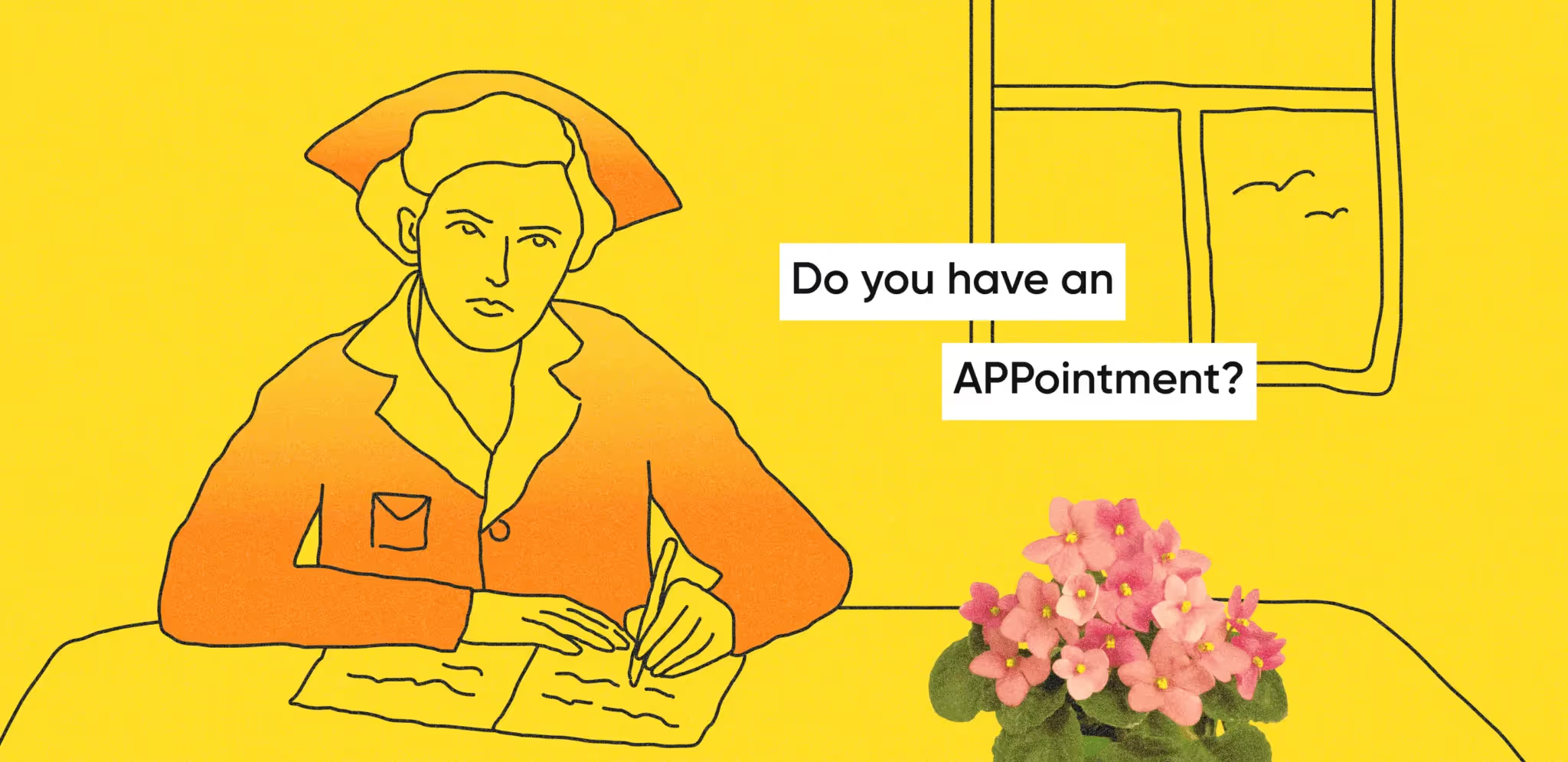
Doctor-on-demand apps connect patients to healthcare industry specialists and provide professional consultations on the go. Generally, there are three roles in the app: a doctor, a patient, and an administrator. Each role requires different functions that do not intersect. The share of doctors and patients is almost equal. So, paying careful attention to doctor-on-demand app development on both of these levels is important.

So, what do users do in doctor-on-demand apps?
According to Zion market research, the global mHealth apps market is growing annually by 38.26%. By 2025, it’s estimated to reach $111.1 billion.
The Statista report is also encouraging. The forecast made for the worldwide telemedicine market shows that in the year 2030, the revenue will amount to $460 billion.

Many factors have contributed to the growth of doctor-on-demand services:
For these reasons, a medical consultation app is a must on a modern person’s smartphone.
If you’re going to make a doctor-on-demand app, check out the leaders of the market and the main features that popular applications incorporate.
One of the market pioneers, this consultation app provides 24/7 virtual healthcare. Hundreds of medical professionals available here are licensed and certified. The main features of this telemedicine app include video calls, an elaborate search function, and integrated maps that allow users to find nearby pharmacies and contact them.
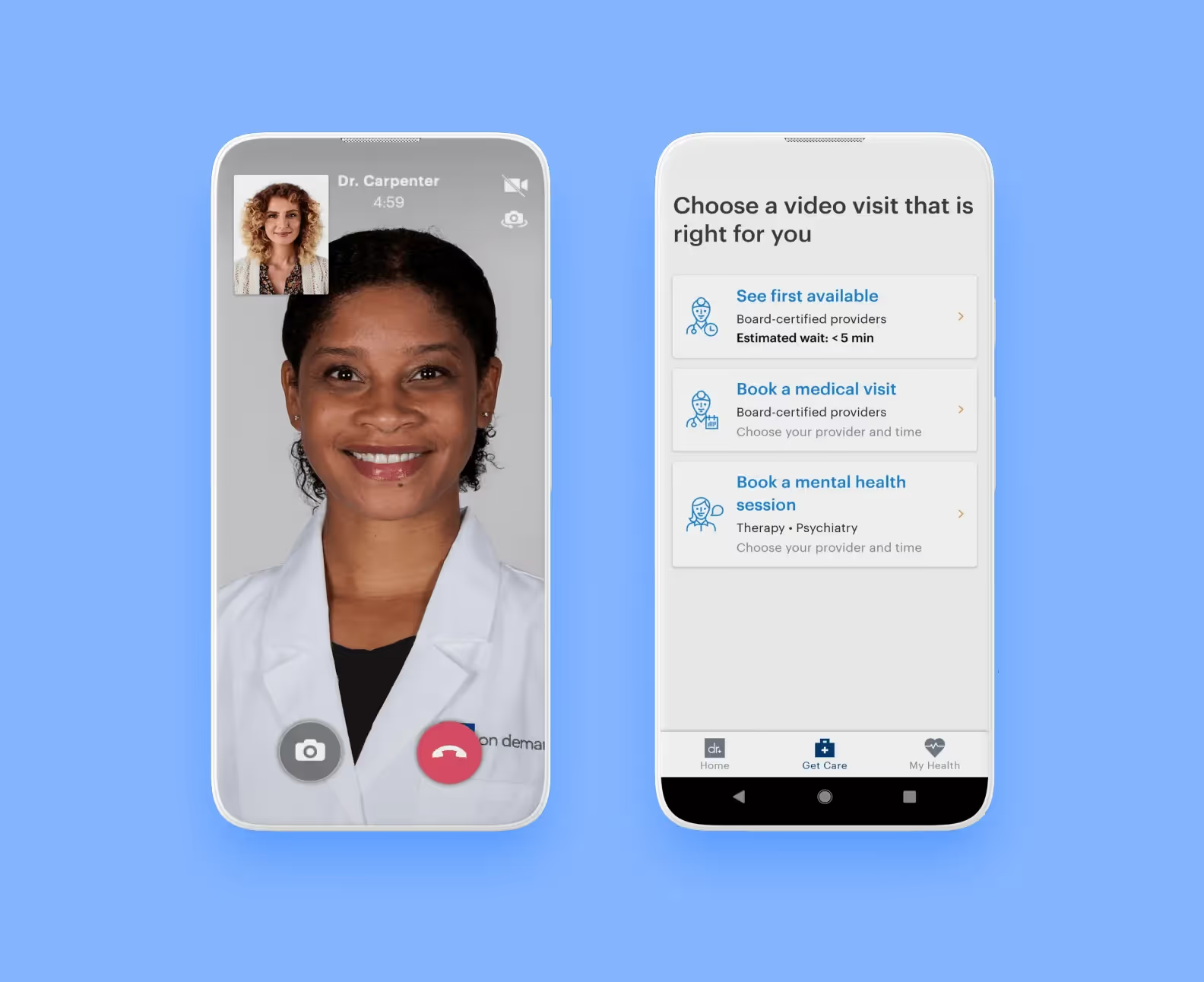
The Doctor On Demand app not only has a wide range of therapists and physicians but also upscale psychiatrists and psychologists who provide mental health treatment.
This telemedicine app offers multiple healthcare services. It’s a family savior in the full sense of the word — even pets can get an online treatment, as the list of app doctors includes veterinarians. The distinguishing feature of the Medici app is an opportunity for a patient to invite his own doctor or healthcare provider to join the service. There is also a group chat where a council of several specialists can be arranged.
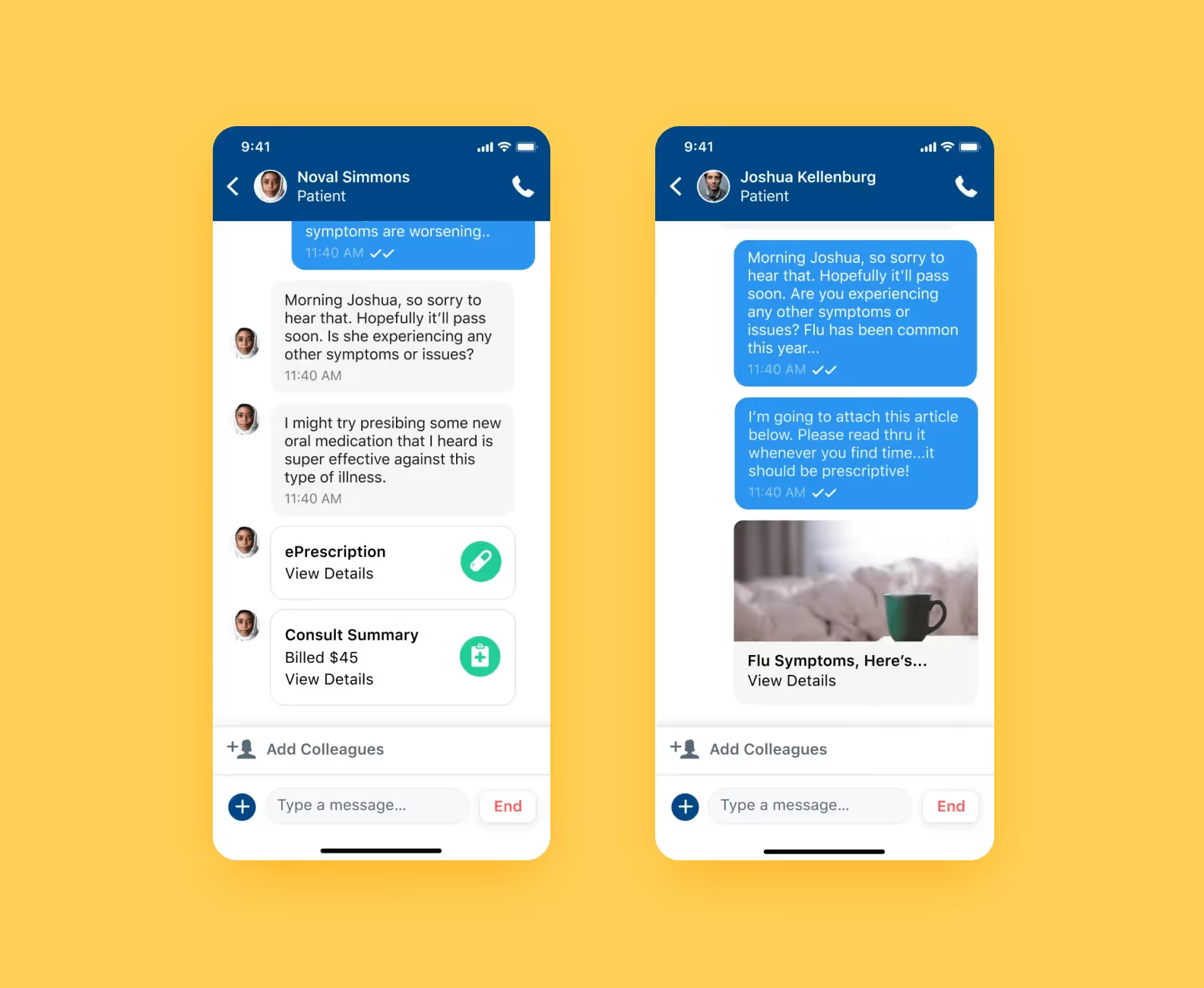
This doctor-on-demand app allows patients to get connected to their own pool of family doctors. And healthcare workers, on the other hand, can manage their clients and get quick access to their history.
The Telehealth app is famous in the healthcare industry for connecting doctors and patients either by video or by audio and text. Users who live in remote areas or have a slow internet connection can choose the options that require less mobile data to access the service.
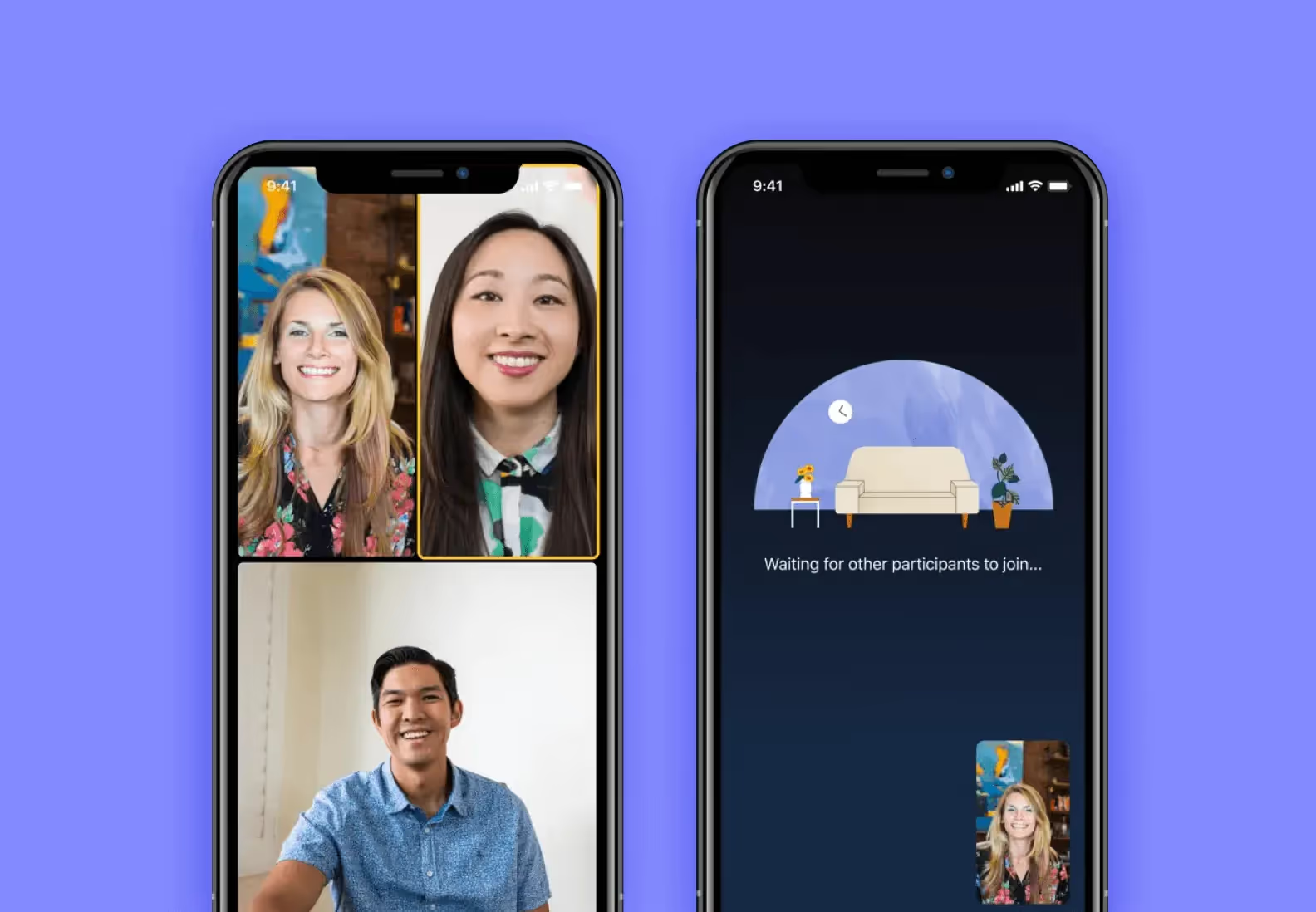
Another eye-catching feature of this doctor-on-demand app is starting video appointments instantly: no login or password required.
We’ve gathered all the advantages of doctor-on-demand apps, both for doctors and for patients.
Three whales on which the doctor-on-demand app rests — a doctor’s, a patient’s, and an admin’s side — have core features to guarantee the best healthcare services experience.

The doctor-on-demand apps market is rather competitive. To stand out and achieve a better user experience, having core features may not be enough. Here are a few ideas on additional features to make a healthcare app indispensable to users.
There are several ways to make doctor-on-demand mobile apps profitable.
We’ve already discussed that on-demand doctor appointment app development may require building core features, without which the app will not be competitive in the telemedicine market. What helps the app stand out are the little things.
Check out these doctor-on-demand app development best practices that can make a difference.
The technology required for a doctor-on-demand app development depends mainly on the platform we’re using. Be it a mobile (Android or iOS app development), web, desktop application, or all at once — the telemedicine app development tech stack will differ.
We at Purrweb find React Native to be the best framework for cross-platform app development. You will need only one cross-platform team instead of two native teams to release your mobile app on iOS and Android platforms.
The app development process, no matter what type of app it is, generally looks like this: Project analysis ➡️ UI/UX design ➡️ App development ➡️ QA ➡️ Release and post-release support. We thoroughly discussed all stages of developing all kinds of apps here.
We at Purrweb always advise startups to build an MVP — Minimum Viable Product. It is the first version of your app. MVP can help you gather valuable user feedback and check feasibility while at the same time being a perfectly working application.
Now, let’s explore the mHealth app niche precisely. How to build a doctor-on-demand app, and what steps are specific here?
When you develop an app in a medical niche, it’s not enough to research the market and analyze your competitors. Every country demands different certifications you should get before launching an app.
For a doctor-on-demand application to function in the US, it must meet the standards of HIPAA, FDA, HHS, and others depending on the provided services. European doctor-on-demand apps require EPSC certification. We have a great article on HIPAA compliant app development, so you can learn everything you need to know.
What is the main thing a doctor-on-demand mobile app user wants? Analyze your target audience and select 2 or 3 main functions that distinguish the service from others. That may be group video calls, synchronization with smartphone health trackers, speedy scheduling, chatbots, etc.
As we’ve previously discussed, trust and security are pillars of the healthcare industry. Ensure that doctors get thoroughly verified and patients’ data is protected. For example, only doctors and patients themselves should have access to EMR (electronic medical record). To respect the patients’ privacy, the administration should not be able to view any EMR or other personal health information.
And last but not least — provide a secure payment gateway for in-app transactions.
The app will have separate parts for doctors, patients, and administrators. All three parts will have different functionality, user interfaces, and technical feasibilities. You don’t want to mix them up.
Choose your desired platforms and hire a team of developers or a mobile app development company. The cost of a doctor-on-demand app is mainly determined at this stage.
You’ve gone through all the stages of the doctor-on-demand app development process and are ready to release a working telemedicine app.
Here’s Purrweb’s doctor-on-demand app development cost and timing breakdown. Bear in mind that these are approximate numbers. We based them on our calculation of an app with basic functionality: no admin panel or video.
Overall, you will need approximately $83,900 to create your own basic functionality app. And the application development process will take 1,720 hours, which equals 2-3 months.
Depending on the staff involved and the desired functionality, the doctor-on-demand app development cost can be lower or higher.
We at Purrweb are familiar with building successful mHealth apps. Here are some insights from our doctor appointment apps portfolio. You can read more about the design and development process of these projects in our other articles.
Patients can be sure that in the My Therapy Assistant app, they get the best mental health treatment, as the doctors are carefully selected. Having downloaded the app, a specialist undergoes a detailed registration process and an interview to prove his qualifications.
In order to work effectively, he needs to meet certain requirements, such as answering patients within 6 hours, updating the calendar, and opening at least five slots per week. This is controlled by a powerful scheduling feature.
On the user’s side, it’s all smooth and easy, with plenty of features to satisfy any need — a chatbot, calendar, notes, video calls, and a window management feature. You can minimize a call window and continue using the app.
For more ideas on the app’s 100-screen design, check the full article: How to develop an online psychotherapy service in the UK and not go crazy
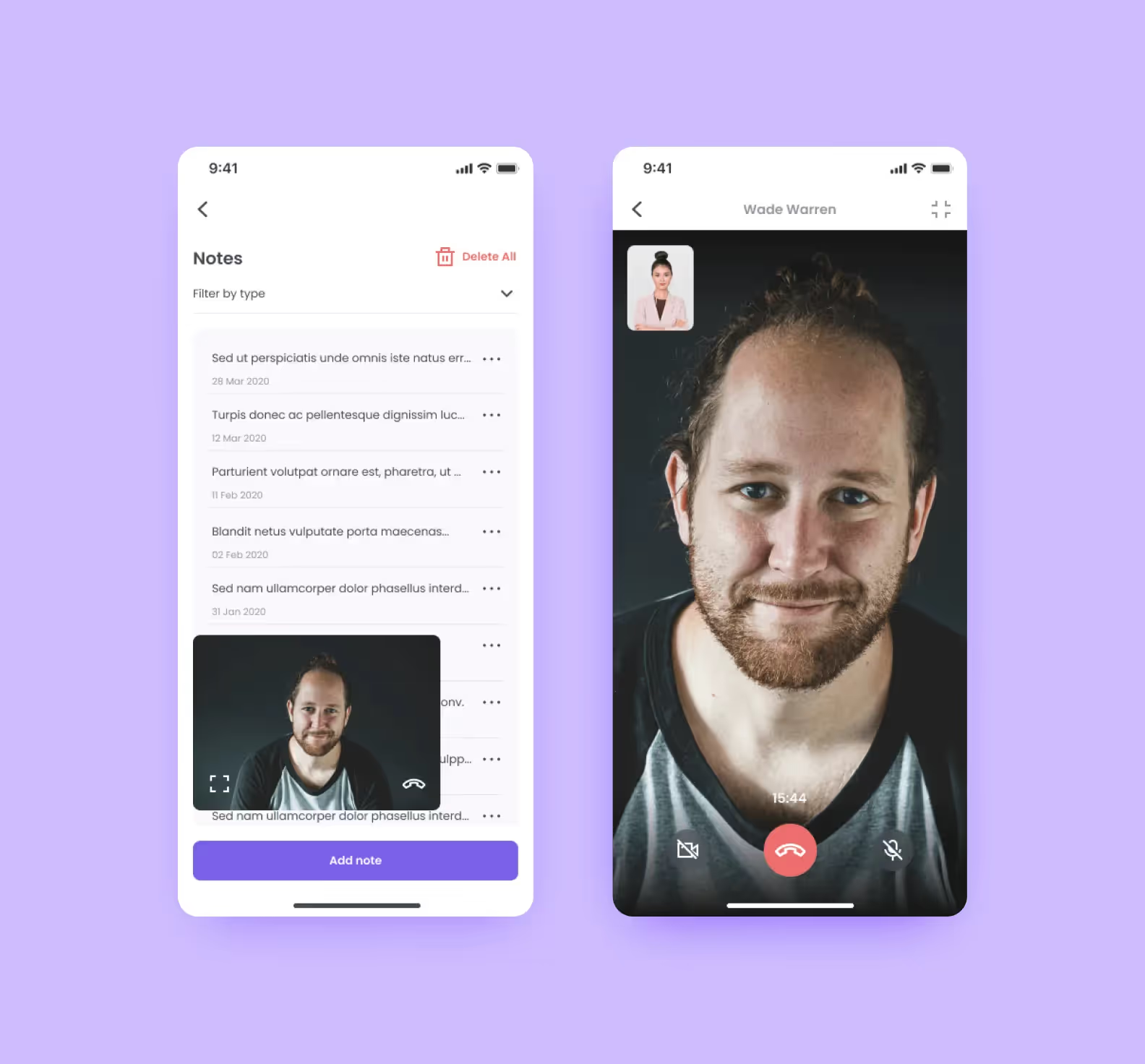
Clearstep doctor-on-demand app (known as Lytic Health at the time we designed it) helps automatically determine preliminary diagnoses and schedule appointments. The crucial feature here is a chatbot that collects primary information about the patient’s symptoms and thus, frees up the doctor’s time.
Another unique feature is a clear dashboard. Thanks to it, a doctor can see relevant information about all his patients, sort them according to the urgency of the case, and quickly access one-on-one chats.
Purrweb’s design helped the startup to get a $400,000 investment and proceed with an upscale doctor-on-demand app development. How did we do it? Read about it in our article.
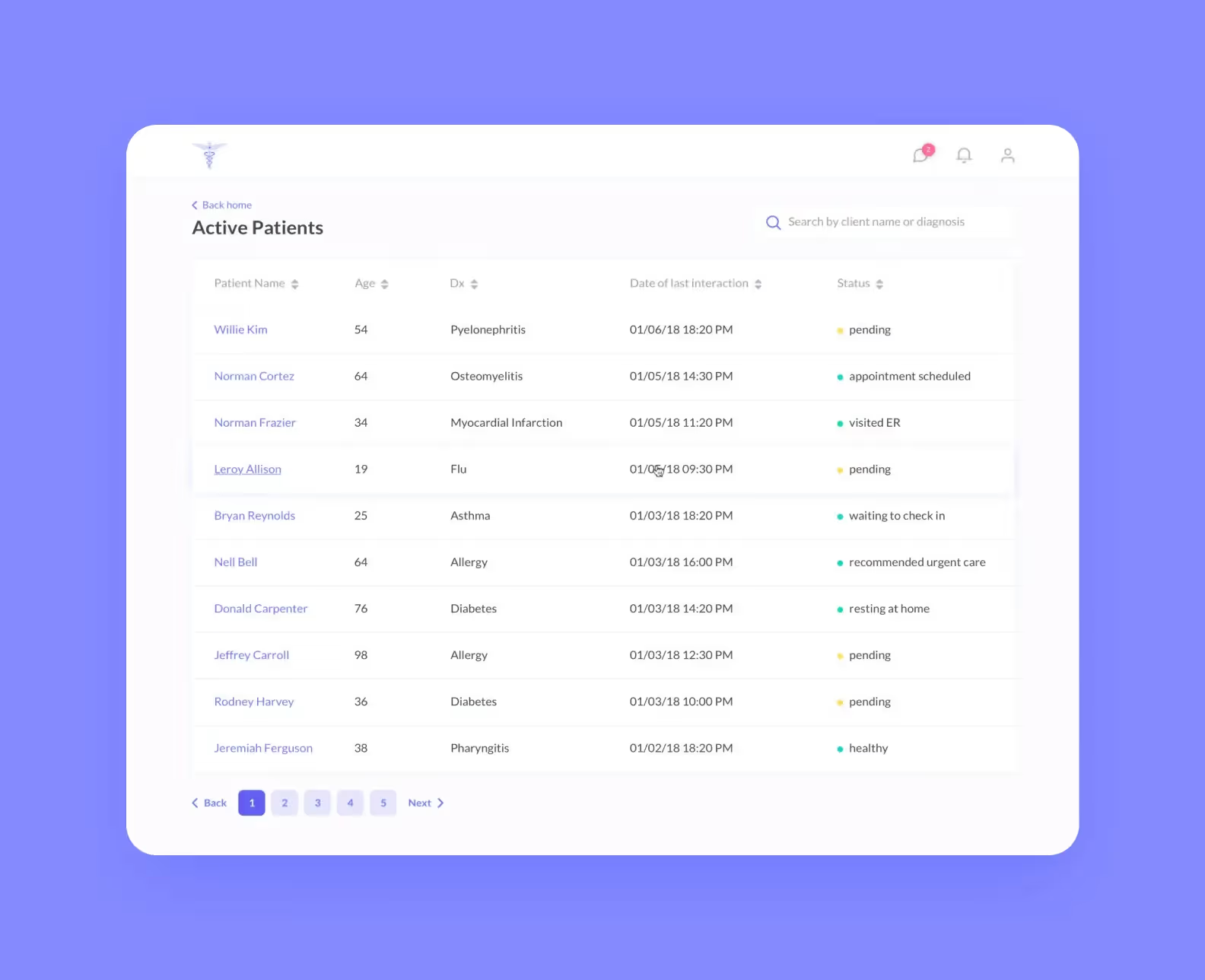
In this article, we’ve discussed the mHealth market and the development of a doctor-on-demand app — features, benefits, and cost. We’ve also shared a detailed step-by-step guide on niche-specific points that need to be taken into account, and our own cases of successful doctor-on-demand app development.
➡️ Have an app idea in mind? Let’s discuss how much it costs to build your future app! Fill in the form, and we will contact you in 48 hours.